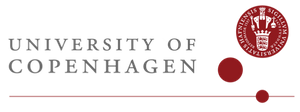The oldest university and research institution in Denmark, the UCPH has ca. 25,000 undergraduate students, 15,000 postgraduate students, 3,000 PhD students and more than 9,000 employees. The university has four campuses located in and around Copenhagen, with the headquarters located in central Copenhagen. The university continues to develop. The number of new students in 2013 was 7,445, the highest ever. Revenue rose by more than 3% to DKK 8,262.9 million. Subsidized activities also increased, accounting for DKK 2,544.6 million of total revenues. The University of Copenhagen ranks 15 among the European universities.
The Department of Drug Design and Pharmacology is the largest and most prominent institution in Denmark in the field of drug development and discovery with ca. 300 staff, 17 full professors and 31 associate professors. The department encompasses a unique wide range of innovative research disciplines and projects directed towards discovery, design and development of compounds and new potential drugs. Furthermore, the department has a strong track record in translational research, from bench-to-bedside. The department consists of a strong medicinal - and radiopharmaceutical chemistry background. Furthermore, it has an extensive international network of connections through more than 180 ongoing externally financed research projects and can provide an excellent infrastructure and very well equipped laboratories in support to this. The Department of Drug Design and Pharmacology ranks twelfth in it field in Europe.
Major research activities in relation to this proposal are
- Medicinal chemistry research towards development of potential drugs and structure-based design
- Translational research
- Radiopharmaceutical tracer development
- Antibody targeting
Associate professor Matthias Herth
Matthias Herth was appointed associate professor in Radiopharmaceutical Chemistry in 2015. He received his PhD in nuclear chemistry in 2009 and received a Marie-Curie-Scholarship in 2011. Associate professor Herth’s expertise is the design, synthesis, radiosynthesis and evaluation of PET tracers of companion diagnostics and receptor-ligand interactions. Current research is focused on in vivo click chemistry, combinatorial-like radiochemical syntheses, nanoparticles and neurochemistry. Publications comprise more than 35 peer-reviewed articles. Prizes received: Wiley Young Chemist Award (JLCR-Award), 11th International Symposium of the International Isotope Society, Heidelberg, Germany in 2012.
Associate professor Jesper Kristensen
After obtaining his PhD in 2002 on the application of organometallic chemistry to the functionalization of different heterocyclic systems, associate professor Kristensen worked in the pharmaceutical industry as a medicinal chemist for one year, before joining the University of Copenhagen in 2002; first as assistant and then in 2008 as associate professor. His research deals with the development of and application of new synthetic methodologies and tools in order to study different biological systems. He has published more than 70 papers in peer-reviewed journals. In 2013, he co-founded a biotech company developing a patented prodrug principle to deliver NSAIDs into joints. He is currently the main supervisor for four PhD students. Two of them are working on the development of PET-tracers towards CNS-targets.


